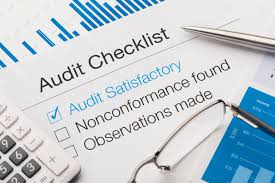Your specialty is running your business. Leave the financial detail to an accountant. If you and your accountant use cloud-based accounting software, you’ll be able to keep track of what your accountant does, and always be able to see your company’s financial situation at a glance.
We have witnessed and/or either worked with companies that have attempted to do their own accounting. While thinking this may help by saving money, it often causes to redo work resulting in a greater cost.
As a startup company, any accountant you decided to partner with should be able to provide a wide range of services to support you through the initial stages. The startup focus will consist of the following;
- Business Licenses
- Tax Compliance
- Payroll
- Policies and procedures
- Expense Tracking
- Financial Planning/Services
Let’s talk about the key components to hiring an accountant reason to give the founder/CEO a break from bookkeeping.
Paying the bills
One of the biggest reason a company would be hesitant on hiring an accounting service is the fear of walking into a mess of collections notices months later. But fear no more. After the initial setup and the wheels turn, the outcome of a successful setup will help save your company money.
Setup for paying bills should consist of the following;
- Your Monthly rent payment
- Insurance companies for monthly premiums
- Loans
- Monthly subscriptions services (software, programs, etc.)
- Suppliers
Payroll
Everyone deserves to get paid for their work on time. An accountant will help with that. Your employees will feel at ease knowing you’re on the right track.
To have a smooth road ahead, your accountant will have solid knowledge of the following;
- Balancing Accounts in system
- Schedules & Summaries
- Payroll Laws
- Preparing Payroll reports
Taxation
Financial Information
Your Accountant will keep track of the companies’ financial transactions using standardize guidelines. Each transaction should be recorded, summarized and presented in a financial report. The purpose of this branch of accounting is it allows others to view the value of your company on paper.
The information needed to prove your worth:
- Income Statement
- Balance Sheet
- Statement of Cash Flows
Income Statement
During this report, you will be able to view your company’s profitability during a specified time frame. Examples: Year to date, one month, three months, etc.
Balance Sheet
The balance sheet is organized into three parts:
- Assets
Cash, accounts receivable, inventory, prepaid insurance, buildings, and equipment. - Liabilities
Payable, Accounts Payable, Wages Payable, and Interest Payable - Stockholders’ equity on a certain date
Defined as the difference between the amount of assets and the amount of liabilities.


